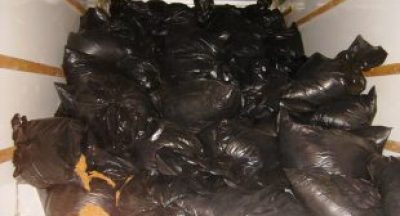Materialism as Predictor of Purchase Intention towards Counterfeit Products: A Conceptual Framework
Consumer decision to buy fake goods has given rise to a worldwide crisis of existence for originalbrands. Counterfeit products are those which bear a trademark that is identical to, orindistinguishable from, a trademark registered by another party and violates the rights of theowner (Kapferer, 1995; Chaudhry and Walsh, 1996; and Eisend and Schuchert-Guler, 2006). Thedemand for consumption of counterfeit has grown dramatically in the past few years. The itemsinclude electronics, food stuff, cosmetics, pharmaceuticals, etc. Although consumers are aware ofthe ethical issues related to counterfeit products (Nill and Schultz, 1996) , research has unfo ld edthe fact that ap proxi mately one-third of the consumers would knowingly buy illicit goods (Tomet al., 1998; and Phau et al., 2001). In addition, Grossman and Shapiro (1988) opine thatconsumers buy counterfeit products deliberately. As demand for these products escalated, themarket flourished to grow at a fast pace, and has become a topic of debate amongst manyresearchers. The demand from the consumers is a major reason encouraging the existence andgrowth of counterfeit products (Ang et al., 2001).
The willingness to buy or not to buy counterfeit products depends on the worth the consumersassociate with materialism. In the words of Richins and Dawson (1992), materialism is the valuegiven to the possession and procurement of material goods in a way to achieve the goals of life.Mason (2001) opines that in order to segregate themselves from others socially, consumersacquire goods to flaunt their status and feel socially accepted. In the Indian context, research hasbeen conducted pertaining to counterfeiting of drugs (Bhushan et al., 2007), counterfeitingcurrencies (Bose and Das, 2013), counterfeiting western brands (Nakassis, 2010) andcounterfeiting product and intellectual property rights (Sarkar and D’Silva, 2013). Indiandomestic marketplace is flooded with counterfeit goods and thus it becomes imperative toinvestigate the factors influencing consumers’ preference for counterfeit goods and thedimensions having an impact on their purchase intention.
Consumption of counterfeit products is increasing with the proliferating demand for brandedproducts. The reasons be hind this increase can be liberalization of trade policies, hugeproduction of counterfeit products, availability of sophisticated techniques at low cost and theupsurge in usage of Internet worldwide (Alcock et al., 2003).
https://www.questia.com/read/1P4-2184907271/materialism-as-predictor-of-purchase-intention-towards
Related Posts
Tobacco smugglers see profit go up in smoke
Over the last few months, CRTF officers laid charges against three people and...
Campaign to target illegal tobacco trade
Trade in illegal tobacco available at ‘pocket money prices’ is the target of a...
Counterfeit Bearings in Shanghai; a Growing Problem, (Tokyo)
Customers in China are suffering from the increasing number of counterfeit...
Counterfeit Goods Worth Sh1.5 Million Seized At A Madora Outlet.
The Anti Counterfeit Agency (ACA) on Friday seized fake goods valued at an...





